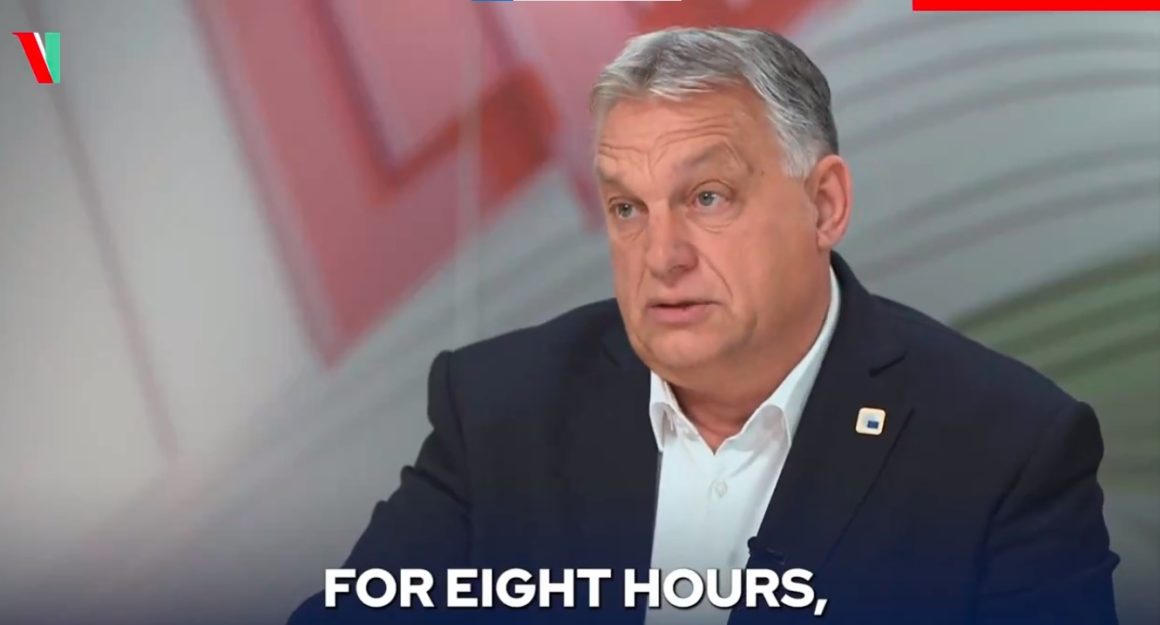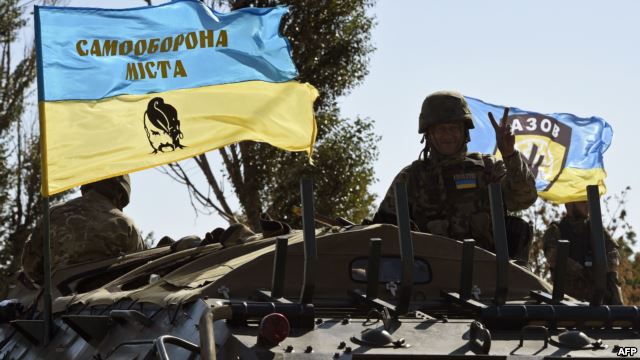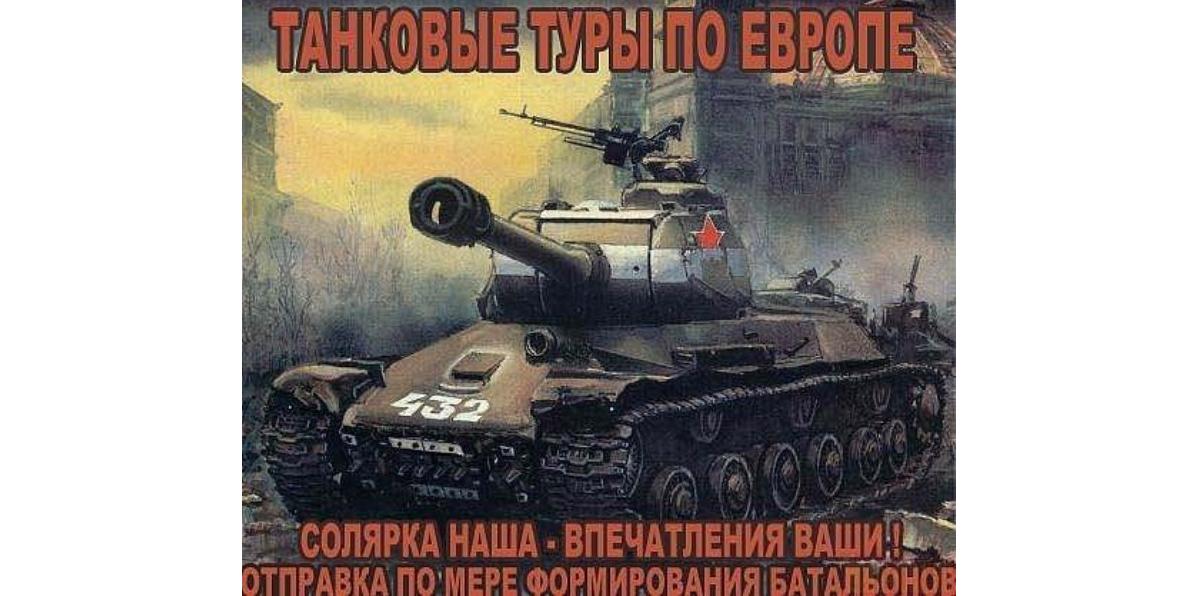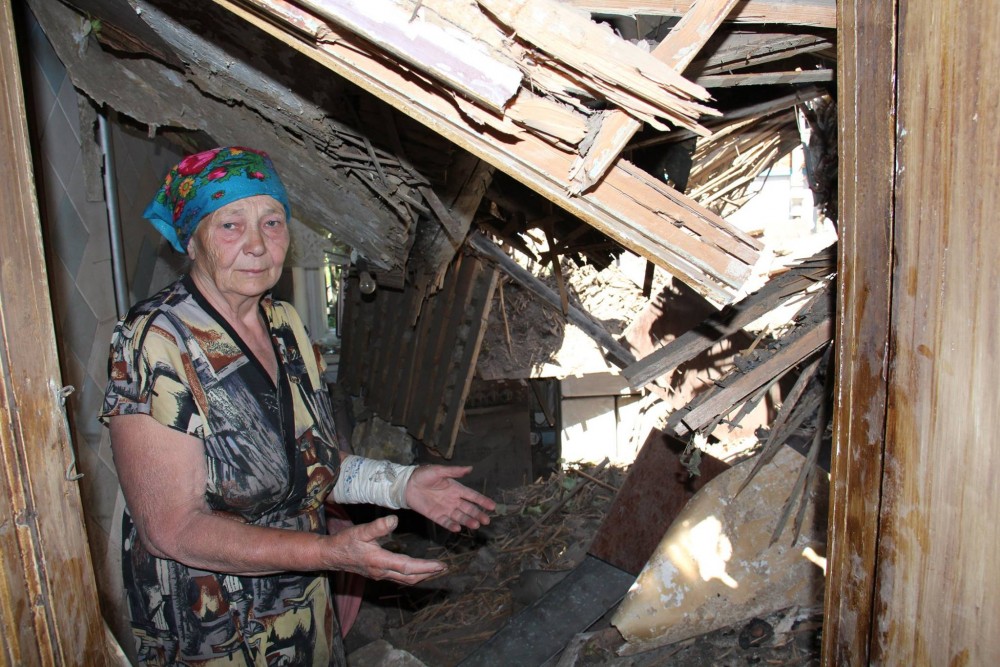Following the EU’s surprise decision to agree to start accession negotiations with Ukraine on 14 December, intrigue looms over what exactly made Hungarian Prime Minister Victor Orban renege on his pledge to bust the deal by all means and agree to step out for a “coffee break” at the time of the vote.
Arriving at the summit, Orban was adamant to block the decision, and EU officials viewed their chances of success at overriding Hungary’s veto to make the politically important decision at 20-30%.
European leaders continued efforts to persuade Orban up to the vote itself: in the morning, a delegation of EU, French, and German leaders personally met with Orban in an attempt to find a way forward.
And yet, when the time came, the Hungarian prime minister appeared to have agreed to the plan with little resistance.
On Twitter (X), he explained that he stepped out not to participate in the “irrational and incorrect” decision, and claimed that he spent eight hours attempting to convince the others not to make it, to no avail. “If the 26 decide to do so, they should go their own way. Hungary does not want to share in this bad decision,” Orban said in a video, to sounds of oddly triumphant music.
Starting accession negotiations with #Ukraine is a bad decision. Hungary did not participate in the decision. pic.twitter.com/omYLSxefkI
— Orbán Viktor (@PM_ViktorOrban) December 14, 2023
Scholz’s “Merkel moment”
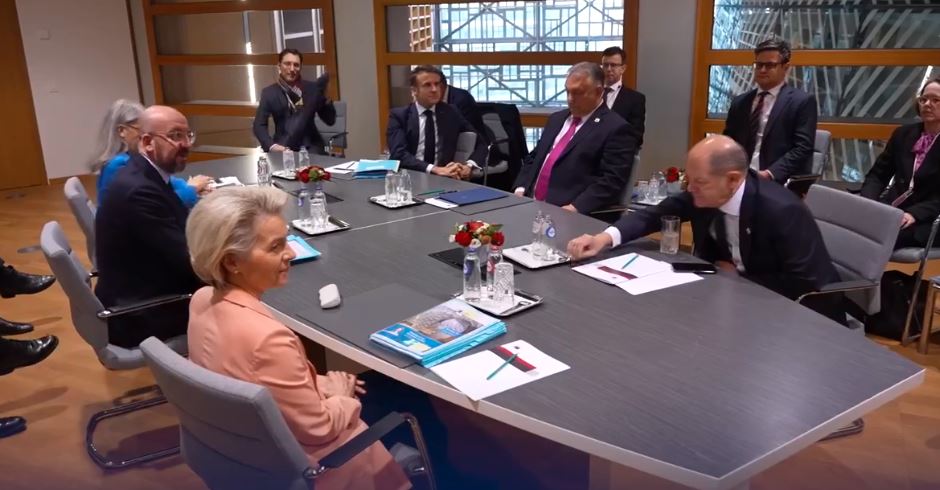
According to Politico quoting two officials, it was German Chancellor Olaf Scholz who came up with the idea that Orban should leave the room to allow Ukraine to come in. The pre-agreed move gave the Hungarian strongman cover after three hours of intense discussions.
Scholz, who was criticized for lack of tactical negotiating and communication skills compared to former Chancellor Angela Merkel, came up with an unprecedented tactic to allow a member state to abstain by exiting the room. EU officials could not recall a leader ever doing this before to allow a unanimous vote, Politico reported.
“He used an old trick from his time with the Young Socialists,” said one unnamed EU summit official, referring to Scholz’s past involvement in the youth wing of Germany’s Social Democratic Party.
Officials said Orbán struggled to justify his claim that Ukraine was unready during a joint breakfast with Scholz and other leaders. Orbán’s position reportedly began to shift after hours of leaders challenging his arguments.
“After a few hours in which the other 26 leaders had debunked all of Orbán’s arguments, Scholz came just at the right time with his proposal,” an EU diplomat stated.
Meanwhile, Ukrainian President Volodymyr Zelenskyy thanked Scholz for his “personal efforts,” while pro-Ukrainian social media accounts praised the German leader’s support.
“Sorry for all the times we made fun of you Olaf,” wrote one blogger. “You are a true friend.”
Scholz watching Orban leave the room during the EU voting: pic.twitter.com/M3SumVyb8C
— Saint Javelin (@saintjavelin) December 15, 2023
Scholz confirmed to n-tv that he indeed proposed to Orban a short “time-out” to “to enable the member states to reach an agreement on accession negotiations with Ukraine,” to which he agreed after a “short period of reflection,” and the vote was made by the leaders of the other 26 EU states.
Scholz said it was “not a trick” but an offer of help for Orban. “It is a decision that we made by mutual agreement in accordance with our rules.” However, the chancellor does not want to make coffee breaks for Hungarian Prime Minister Orban a rule at EU summits in order to circumvent his vetoes. “It can’t be solved every time by walking out the door,” says Scholz at the end of the summit in Brussels. “This is for special moments.”
However, success has many parents, and EU officials have also shared with Politico that French President Emmanuel Macron was part of a charm offensive plan for Orban, meeting with him separately in Paris, and then working with European Council President Charles Michel, Meloni, Scholz and “other leaders including [Dutch Prime Minister] Mark Rutte” to find a way to move forward without Orbán.
“In the end, we managed to suggest a solution,” Macron said, hinting that the leaders had gotten the idea from Orbán himself.
As well, Libero claimed, without citing sources, that it was Orban’s Italian counterpart Giorgia Meloni who managed to convince Orban of the need to give the green light to negotiations on the future EU membership of Ukraine and Moldova, as well as granting Georgia the status of a candidate country for EU membership. Meloni met with Orban for a separate bilateral talk on the day of the summit.
Orban still blocks EUR50 bn for Ukraine and can veto Ukraine’s EU path 75 more times
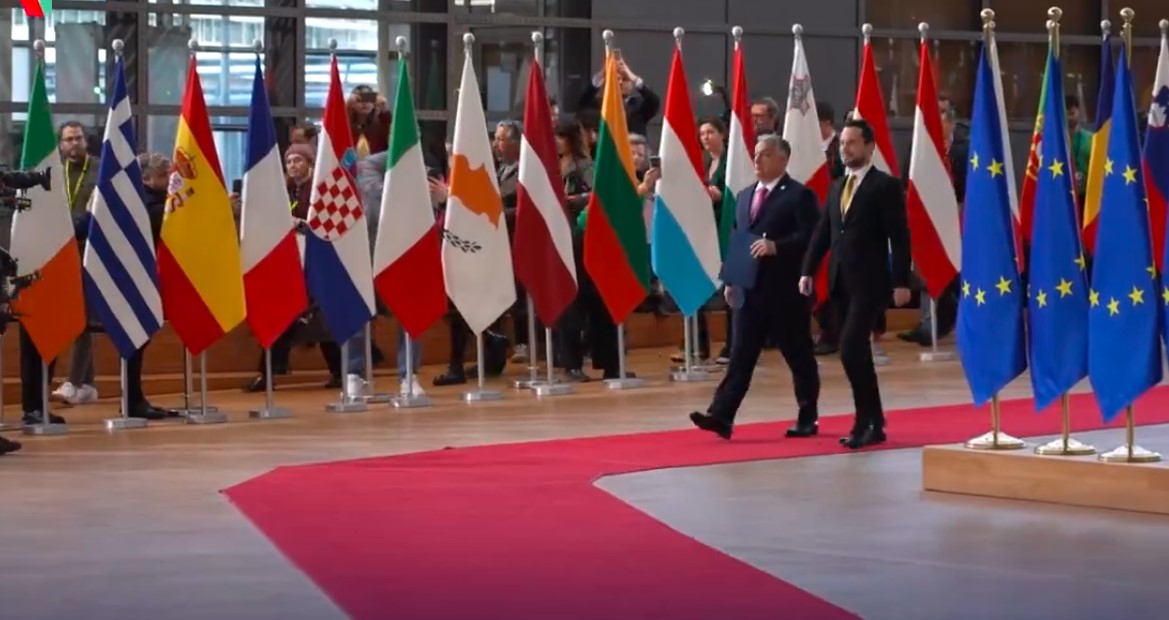
Despite the innovative “veto circumvention” method for the political vote, Orban blocked EUR50 bn of crucial financial aid for Ukraine.
Debates lasted until 3AM on 15 December without the results that EU leaders were seeking. Orban vetoed a large package of financial decisions, including the Ukraine Facility program, which aims to provide EUR50 billion euros over four years to cover Ukraine’s budget deficit, thus helping Ukraine find funds to finance its army.
European Council President Charles Michel already announced that a separate EU summit will be convened in early January to solve this issue. Even if the aid is not agreed upon then, the 26 EU countries in support can sign separate bilateral agreements on aid with Ukraine, even if this is more cumbersome and laborious and undermines the unity necessary for the bloc’s aspirations to become a geopolitical leader.
However, Hungary has plenty of opportunities to put spokes in the wheels of Ukraine’s EU accession. Speaking on the air of state-owned Kossuth Rádió, Orban told that “if needed, the Hungarian Parliament will apply the handbrake” when explaining his unsuccessful attempts to dissuade EU leaders from giving Ukraine the green light.
“Their decisive argument was that Hungary has nothing to lose, as national parliaments will have the last word, so the Hungarian parliament can vote against it. There will be 75 more cases when the country can stop it,” Orban summarized.
Inside the EU, discussions continue on the need for internal reform in order to avoid a situation when a country takes the bloc hostage over crucial decisions. Although Orban denies any connection to Ukraine, the EU unblocked EUR10 bn of Hungarian funds frozen over rule of law issues ahead of the summit, hinting this was done to persuade a positive solution for Ukraine.
The issue was in the air even at the 14-15 December summit, according to Ukraine’s Deputy Prime Minister for European and Euro-Atlantic Integration Olha Stefanishyna.
Speaking on air of Ukraine’s national newscast, 26 EU member states considered stripping Hungary of its veto right if it blocked the decision to start membership talks with Ukraine.
She said EU leaders had “a large number of options and variants” to achieve consensus on issues brought to the summit, from financial ones to compromises regarding Western Balkan states.
“If the situation [..] was more critical, 26 EU member states were ready to deprive Hungary of the right to vote. This is an official procedure, never used before, but it exists. I think this also became an argument,” she said.
Stefanishyna’s comments suggest the bloc was prepared to invoke Article 7 to suspend Hungary’s voting rights if Orban vetoed Ukraine’s bid.
Article 7 of the EU Treaty allows the Council, with the consent of Parliament, to determine whether there is a risk of a serious breach of EU values by a member state.
If the Council determines there is a serious and persistent breach, it can decide by a qualified majority to suspend certain rights of that state, including its voting rights in the Council.
Article 7 provides a mechanism for the EU to sanction member states violating EU values, but it has never been invoked.
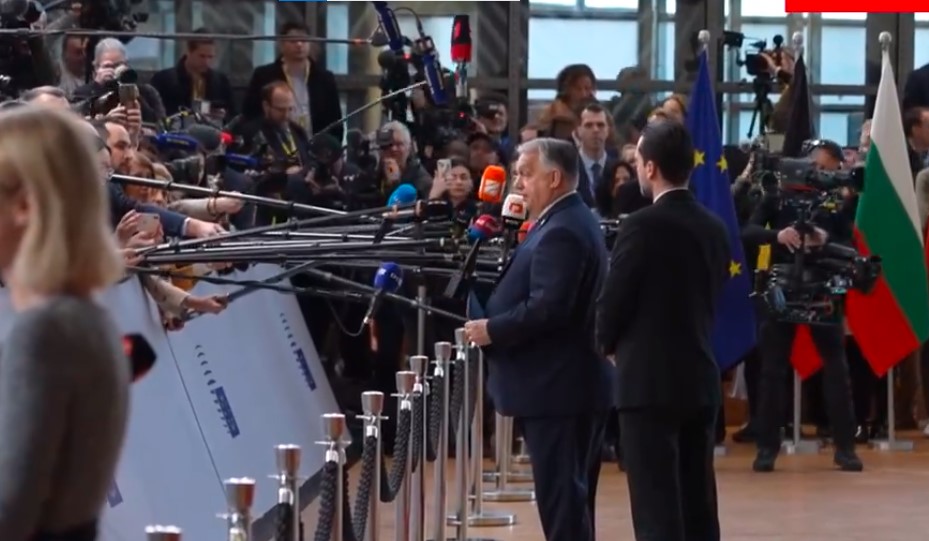
Intense technical work ahead for Ukraine
The European Union’s decision to open membership talks with Ukraine marks the start of intense technical work, explains Veronika Movchan, director of science at the Institute for Economic Research and Policy Consulting, in an interview with LIGA.net.
On 18 December, the Commission will start screening Ukrainian legislation to check its compliance with EU norms. Ukraine has been doing self-assessments over the past year, so it will be a chance to compare. Meanwhile, the next vote will take place in March 2024. Then, the European Commission will give its assessment of Ukraine’s progress compared to the report issued in November.
If the evaluation is positive, an EU summit should open substantive negotiations by adopting a negotiation framework and defining the clusters.
According to Movchan, the negotiation process essentially means adapting Ukraine’s legislation to the EU. EU law is divided into 35 chapters grouped into six clusters: fundamentals (judicial system, justice, etc.), competitiveness, internal market, green policy, agriculture, foreign relations.
“A cluster is a group of chapters. Instead of opening each chapter separately, an entire cluster is opened at once,” Movchan explains. “But each chapter within the cluster will be closed separately.”
Ukraine’s situation is best with the foreign policy cluster and most difficult with the fundamentals, Movchan adds.
“We have very intensive work ahead. Even by Ukraine’s assessments, approximately one third of the total work has been done,” she says. “If during negotiations we do something wrong and roll back reforms, a chapter could be reopened.”
There will be countless votes during the negotiation process, including on opening new clusters, Movchan specifies to LIGA. “We will live from requirement to requirement, but these will already be technical negotiations. The summit made the political decision to launch the process.”
In total, Ukraine must implement 2,700 European acts, warns Prime Minister Denys Shmyhal. EU Ambassador to Ukraine Katarina Mathernova predicted completing negotiations and Ukraine’s EU membership closer to 2030.
Brussels backs EU membership talks for Ukraine. Here’s what happens next
Related:
- “Putin at the table” as EU scrambles to persuade Orban at crucial summit
- Putin’s Trojan horse? Orban’s veto looms over Ukraine’s EU bid




